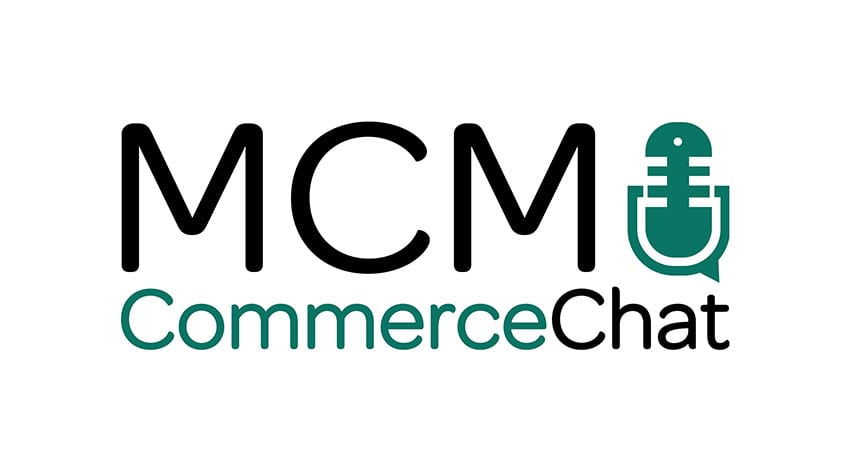
It likely wasn’t much of a surprise that JC Penney filed for chapter 11 bankruptcy after the recent and sudden shift from physical to solely digital. It may have been a little more of a shock, however, that high profile brands like Neiman Marcus and J.Crew have also succumbed to the pandemic.
Too many stores, too little investment in the digital economy – and a final pandemic blow – will undoubtedly be stated by the pundits. And for those left standing, “reopening the economy” is unlikely to reverse the shift from digital back to physical. The die has been cast, and the pain retailers have been facing for the past several years will only intensify unless they use this time for an extreme digital makeover.
Not to change the topic here:
Farmer Boy Launches New eCommerce Website
MYERSTOWN, Pa. , May 28, 2020 /PRNewswire/ -- Farmer Boy, a leader in agricultural supply and construction, announced today the launch of their new eCommerce website. The new website has been redesigned from the ground up to provide a leading-class online shopping experience.
"Our new site takes the best elements of what eCommerce users expect from a UI/UX perspective, and applies that directly to the Agribusiness space," stated Brian Smith , Director of eCommerce Operations. "The site isn't just built for today; it's built in anticipation of the needs we see emerging in the agricultural space. It's an exciting time for Farmer Boy, as we fully commit to a digital future, and we can't wait to make our customers more efficient and effective as a result."
The Significance of Shops for Facebook, Sellers, Ecommerce

Facebook’s recent unveiling of Shops was a major step toward its ambitions to be a major player in not just influencing ecommerce but enabling transactions as well. It allows sellers of all stripes to set up storefronts for free that reach the millions of users on Facebook and Instagram, and soon adding WhatsApp and Messenger to comprise the total suite.
So what is the potential for Facebook? Could it be looking beyond transactions to a WeChat scenario that creates a total consumer experience? In this MCM CommerceChat podcast we talked to Andrea Szasz, a principal analyst at Kearney, to get her thoughts on the social giant’s initiative, the interplay with other major operators and how it fits into the bigger picture of ecommerce in the COVID-19 era.
Japan Is an Enticing Market for Cross-border Ecommerce | Practical Ecommerce

Japan is the world's third-largest ecommerce market following China and the United States. However, it is often overlooked by foreign online merchants because of an unusually low cross-border purchase rate and a somewhat insular approach to online shopping.
Only 10 percent of Japanese consumers buy goods on foreign websites. Nevertheless, with a population of 126.5 million, a 93-percent internet penetration rate, and 75 percent of those making purchases online, Japan is an enticing market for cross-border online sellers.
Not to change the topic here:
Your Action Plan For A Next-Gen Ecommerce Experience

From PSFK and Avalara's deep-dive research on how to build leading digital retail experiences, these six pillars outline key capabilities for future-proof ecommerce
Personalization at scale.
Seamless, accurate checkout.
Fast, flexible, and reliable fulfillment.
* * *
The most successful retailers, brands and marketplaces are responding to these digitally-enabled expectations, as the divide between tech-enhanced leaders and lagging counterparts grows wider.
Nordstrom Plays The eCommerce Card | PYMNTS.com

The digital shift has come to Nordstrom , and not a moment too soon. The department store chain earned a respectable first quarter as announced Thursday (May 28) through a mix of shrewd inventory management, financial reorganization and eCommerce strength.
While pointing out that it ended calendar 2019 in solid condition, the chain logged positive results in February in-store sales and ongoing growth of its $5 billion eCommerce business. The company temporarily shut down all stores on March 17 due to the pandemic, which had the expected weight on its overall results. The company says that its offline-online split is about 66 to 33 percent of sales. For the first quarter ended May 2, 2020, net sales decreased 40 percent from last year.
New U.K. ecommerce businesses need guidance | Practical Ecommerce

It has been two months since we started the lockdown in the U.K. It seems longer. The air is cleaner, and the traffic is quieter. It has been a peaceful time, but it’s soon over. The country is slowly waking up; people are moving around.
One thing has occurred during the lockdown that I did not predict but is obvious in hindsight: There has been an explosion of small internet businesses.
Many people have turned to their hobbies during the lockdown and contemplated how to make money from them. Ecommerce is an obvious choice. Initially they used Facebook and other local social media sites to advertise their goods. Those who found a ready market are considering a proper ecommerce site.
Alibaba wants to boost social ecommerce around the world by hiring 100,000 influencers - The

AliExpress, the cross-border ecommerce business of Alibaba Group Holding, aims to enlist more than 100,000 online influencers from around the world this year, helping create original content designed to attract and engage more users to the platform.
This social commerce strategy, which has proven successful in China, is being introduced overseas via AliExpress Connect, a new part of Alibaba’s English-language global business-to-consumer marketplace, according to a statement from AliExpress on Thursday. Alibaba is the parent company of the South China Morning Post.
Happening on Twitter
Coronavirus: Monkeys 'escape with COVID-19 samples' after attacking lab assistant https://t.co/neUMb0nuhy SkyNews (from London, UK) Fri May 29 11:49:12 +0000 2020

No comments:
Post a Comment